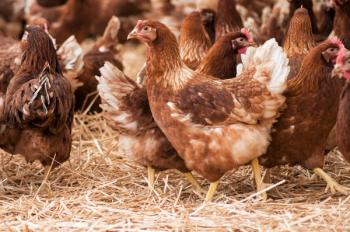
ClinQuiz: Fast tick facts, answer 4C
ClinQuiz: Fast tick facts, answer 4C
4) C–Correct.
Home infestations with hard ticks are almost always caused by R. sanguineus, the brown dog tick or kennel tick, which prefers to feed on dogs as larvae, nymphs, and adults. Rhipicephalus sanguineus is unique among the hard dog ticks in North America in that it can tolerate the low-humidity environment inside homes, surviving and even thriving for generations. This tick shows a strong host preference for dogs and is only occasionally reported on cats or people. 17 However, home infestations with R. sanguineus may increase the opportunity for zoonotic disease transmission by this tick as it brings large tick populations in close, almost constant contact with people. 18
Newsletter
From exam room tips to practice management insights, get trusted veterinary news delivered straight to your inbox—subscribe to dvm360.




